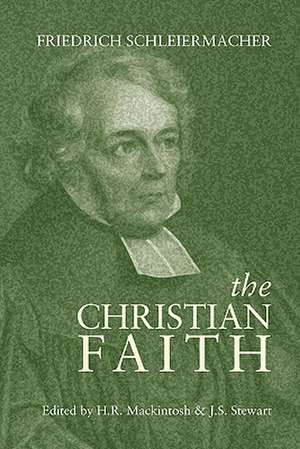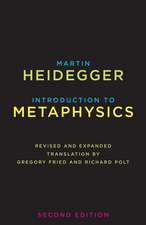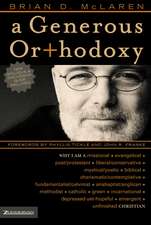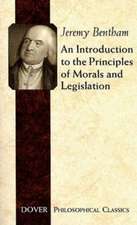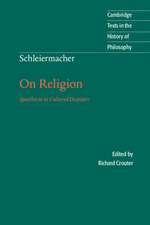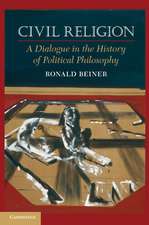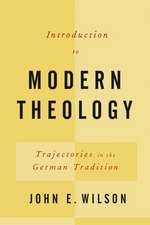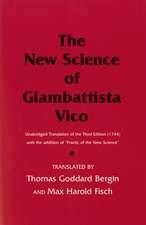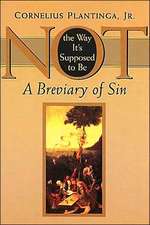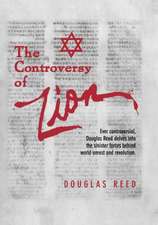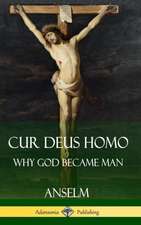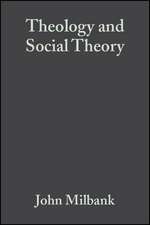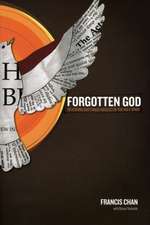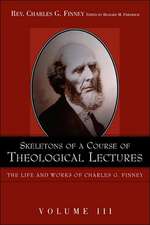The Christian Faith
Autor Friedrich Schleiermacheren Limba Engleză Paperback – 31 ian 2011
| Toate formatele și edițiile | Preț | Express |
|---|---|---|
| Paperback (3) | 245.89 lei 3-5 săpt. | |
| Apocryphile Press – 31 ian 2011 | 245.89 lei 3-5 săpt. | |
| Bloomsbury Publishing – 24 aug 2016 | 367.61 lei 6-8 săpt. | |
| Bloomsbury Publishing – 10 ian 1999 | 723.49 lei 6-8 săpt. | |
| Hardback (1) | 344.05 lei 3-5 săpt. | |
| AndroGyne Press – feb 2011 | 344.05 lei 3-5 săpt. |
Preț: 245.89 lei
Nou
47.06€ • 49.07$ • 39.11£
Carte disponibilă
Livrare economică 27 februarie-13 martie
Specificații
ISBN-10: 1937002039
Pagini: 760
Dimensiuni: 229 x 152 x 43 mm
Greutate: 1.11 kg
Editura: Apocryphile Press
Descriere
Caracteristici
Notă biografică
Friedrich Schleiermacher (1786-1834) was a German theologian, philosopher, and biblical scholar known for his attempt to reconcile the criticisms of the Enlightenment with traditional Protestant Christianity.Paul T. Nimmo is Professor of Systematic Theology at the University of Aberdeen, UK.
Cuprins
New preface by Paul T. NimmoIntroductionCh.1: The Definition of Dogmatics1. The Conception of the Church2. The Diversities of Religious Communions in General3. Presentation of Christianity in its Peculiar Essence4. The Relation of Dogmatics to Christian PietyCh.2: The Method of Dogmatics1. The Selection of the Dogmatic Material2. The Formation of the Dogmatic SystemFirst part of the System of Doctrine:First Section1. Introduction2. First Doctrine: Creation3. First Appendix: The Angels4. Second Appendix: The Devil5. Second Doctrine: PreservationSecond Section1. Introduction2. First Doctrine: God is Eternal3. Second Doctrine: God is Omnipresent4. Third Doctrine: God is Omnipotent5. Fourth Doctrine: God is Omniscient6. Appendix: Some other Divine AttributesThird Section1. Introduction2. First Doctrine: The Original Perfection of the World3. Second Doctrine: The Original Perfection of ManSecond Part of the System of Doctrine1. IntroductionFirst Aspect of the Antithesis: Explication of the Consciousness of SinFirst Section: Sin as a State of Man1. First Doctrine: Original Sin2. Second Doctrine: Actual SinSecond Section: The Constitution of the World in Relation to SinThird Section: The Divine Attributes which relate to the Consciousness of Sin1. Introduction2. First Doctrine: God is Holy3. Second Doctrine: God is Just4. Appendix: The Mercy of GodSecond Aspect of the Antithesis: Explication of the Consciousness of Grace1. IntroductionFirst Section: The State of the Christian as Conscious of the Divine GraceFirst Division: Christ1. Introduction2. First Doctrine: The Person of Christ3. Second Doctrine: The Work of ChristSecond Division: The Manner in which Fellowship with the Perfection and Blessedness of the Redeemer expresses itself in the Individual Soul1. Introduction2. First Doctrine: Regeneration3. Second Doctrine: Sanctification Second Section: The Constitution of the World in relation to Redemption1. IntroductionFirst Division: The Origin of the Church1. Introduction2. First Doctrine: Election3. Second Doctrine: The Communication of the Holy SpiritSecond Division: The Subsistence of the Church alongside of the World1. IntroductionFirst Half: The Essential and Invariable Features of the Church1. Introduction2. First Doctrine: Holy Scripture3. Second Doctrine: The Ministry of the Word of God4. Third Doctrine: Baptism5. Fourth Doctrine: The Lord's Supper6. Fifth Doctrine: The Power of the Keys7. Sixth Doctrine: Prayer in the Name of ChristSecond Half: The Mutable Element Characteristic of the Church in Virtue of its Coexistence with the World1. Introduction2. First Doctrine: The Plurality of the Visible Churches in Relation to the Unity of the Visible3. Second Doctrine: The Fallibility of the Visible Church in Relation to the Infallibility of the InvisibleThird Division: The Consummation of the Church1. Introduction2. First Prophetic Doctrine: The Return of Christ3. Second Prophetic Doctrine: The Resurrection of the Flesh4. Third Prophetic Doctrine: The Last Judgment5. Fourth Prophetic Doctrine: Eternal Blessedness6. Appendix: On Eternal DamnationThird Section: The Divine Attributes which relate to Redemption Conclusion: The Divine TrinityIndexes
